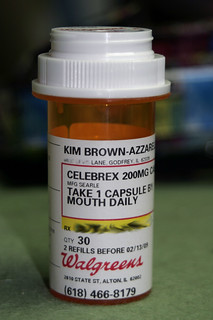
A six-month investigation by Fortune magazine cuts to the heart of the so-called “Fast and Furious” scandal. Fast and Furious was an ATF operation to staunch the flow of illegal guns from the U.S. to Mexico. American straw buyers working for the drug cartels buy guns in Phoenix and run them over the border.
By early 2010, the ATF agents had 20 Fast and Furious suspects in their crosshairs, but the suspects and their arsenal got away. Some of those guns resurfaced at crime scenes in Mexico. Another gun linked to a Fast and Furious suspect was linked to the murder of a U.S. Border Patrol Agent. The question is: Did the ATF let those guns slip through on purpose, in order to see where they would go? Republicans like Daryl Issa (R-CA) insist that it was a deliberate tactic, citing allegations by some ATF agents involved in the operation.
However, five ATF agents told Fortune that they did everything they could to seize those guns, but federal prospecutors in Arizona refused to allow ATF to arrest the 20 suspects, who had forked over some $350,000 in cash for 650 weapons:
Indeed, a six-month Fortune investigation reveals that the public case alleging that Voth and his colleagues walked guns is replete with distortions, errors, partial truths, and even some outright lies. Fortune reviewed more than 2,000 pages of confidential ATF documents and interviewed 39 people, including seven law-enforcement agents with direct knowledge of the case. Several, including [ATF supervisor Dave] Voth, are speaking out for the first time.
The federal prosecutors said the ATF had no proof that the guns, which had been legally–if suspiciously–purchased in the U.S., were destined for Mexico. Arizona prosecutors were equally unhelpful:
Prosecutors repeatedly rebuffed Voth’s requests. After examining one suspect’s garbage, agents learned he was on food stamps yet had plunked down more than $300,000 for 476 firearms in six months. Voth asked if the ATF could arrest him for fraudulently accepting public assistance when he was spending such huge sums. Prosecutor Hurley said no. In another instance, a young jobless suspect paid more than $10,000 for a 50-caliber tripod-mounted sniper rifle. According to Voth, Hurley told the agents they lacked proof that he hadn’t bought the gun for himself.
Prosecutors told the ATF they couldn’t seize the guns of suspected straw purchasers. The mere fact that a poor suspect was buying huge numbers of guns with cash and handing them off quickly wasn’t probable cause that he was a straw buyer. Maybe he was just an upstanding citizen exercising his Second Amendment rights.
So, the ATF changed course. Instead of seizing guns from straw purchases, piecemeal, they would gather wiretap evidence to prove that they were all part of a larger conspiracy. If they could get the buyers on the phone taking orders from Mexico, they would have probable cause.
Internal emails show that Phonenix Group VII was deeply divided about something during this period. Issa alleges that the group was split over gun walking, with ATF supervisor Dave Voth wanting to let the guns go, and Issa’s whistleblowers opposing gun walking. But there’s no smoking gun, as it were, just a paper trail of office bickering about an unspecified tactic. The agents could have been fighting about anything. Voth says they were arguing about who would get weekend wiretap duty.
Republican investigators have proof that an ATF agent in Phoenix Group VII, John Dodson, let three guns walk in a separate case. The straw buyer in question was also a Fast and Furious suspect. Voth says Dodson walked the three guns without his permission. Dodson went over Voth’s head and got permission from Voth’s supervisor to walk the guns, which were never recovered. The fact that Dodson got caught gun walking casts doubt on Issa’s theory the spat within Group VII was over gun walking with Voth in favor and Dodson and his allies against.
So, an ATF official approved gun-walking in at least one instance, but not for Operation Fast and Furious.
In summary, Fast and Furious agents wanted to arrest the suspects in Arizona and take their guns away before they could hand them off to drug lords, but prosecutors said no, that would be against the law. So, ATF gave up trying to arrest low-level purchasers and refocused their efforts on gathering wiretap evidence to bring down the entire network. In the meantime, the suspected straw purchasers–whom prosecutors had deemed untouchable–moved the guns over the border and into the hands of murderous drug lords, just like ATF predicted.
There is no evidence that ATF let the Fast and Furious guns walk to see where they ended up. If this was a grand experiement, where’s the paper trail that shows how they planned to track the guns in Mexico?
ATF “let” suspected straw purchasers hand their weapons off to the drug lords because prosecutors told them they didn’t have the power to stop them. If there’s a scandal here, it’s that the law on straw purchasers is utterly toothless.
[Photo credit: <a href=”http://www.flickr.com/photos/lynnfriedman/6957385306/sizes/n/in/photostr… Friedman</a>, Creative Commons.]










